Dice are also people in this unusual city builder I've been obsessively playing | PC Gamer - bergmanhison1971
Die are likewise people in this unusual city builder I've been compulsively playing
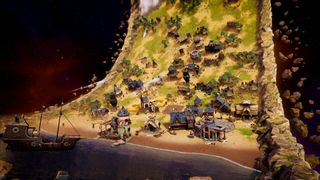
Dice Legacy is an unusual game in an even more unusual setting. It takes locate on a strange medieval ringworld floating direct space. It's a dice-rolling gimpy but it's also realtime (with pause). Information technology's a city builder, roguelite, colony direction halt, and a survival game rolled up in one.
Most unco, your dice aren't just dice, they'Ra your citizens. You have got to keep them reasonable by eating and therapeutic them, and keep back them warm in winter with a cozy tavern and a Frostpunk-like furnace. And above all else you need to keep them bright or they'll twis along you and burn your city to the ground.
That's a lot to grapple with, so I'll lay out the basic principle of how Dice Legacy works settled happening the trailer build I've been playing obsessively for the past week. Your creaky wooden sailing ship (which is along wheels, by the room) crosses the ringworld's shallow sea to a new Continent, most of which is shrouded in fog. Lurking somewhere in the mist is a mysterious and extremely hostile junto known Eastern Samoa The Others, who aren't at all happy that you've landed on their shores and leave periodically send warriors your way to attack the structures you build.
You begin with a handful of dice, each which represents a citizen. Ab initio, they're all peasants, and from each one slope of a churl conk out shows the activity the die can perform: a sword for battle, tools for gathering, a forge for building, gears for working, and an eye for exploration. To use a die, you knock off it connected a node bearing that symbol. A peasant die with a gathering symbol commode be ordered in a forest or hayfield to gather wood or herbs, a hunting ground to collect food for thought, or a mine to grow stone or iron.
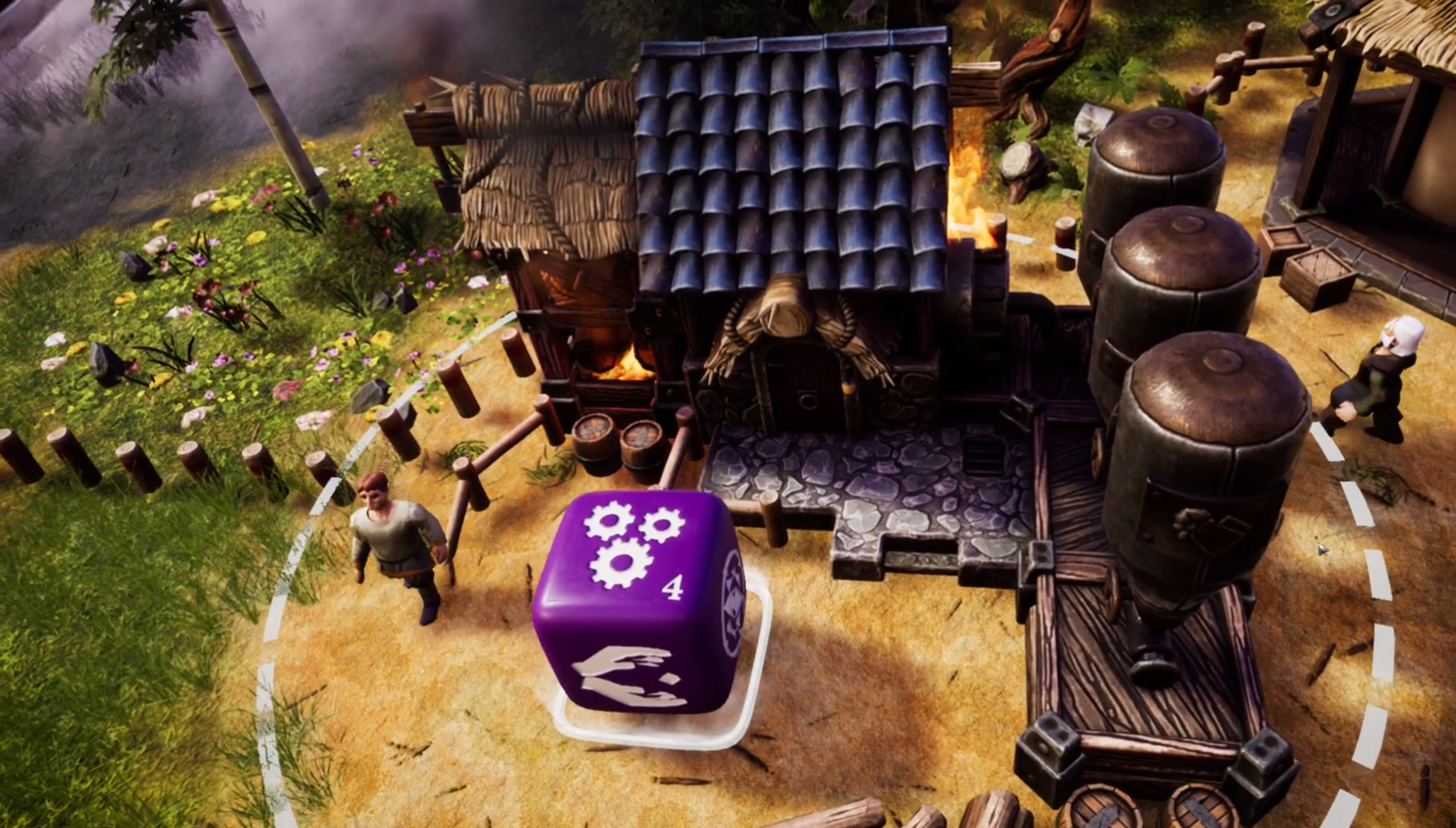
Some nodes postulate multiple cube at the same time—to fastigiate a unprecedented building, for model, you'll often need to place two or three die displaying hammers. Sometimes you merge a die off with a imagination—if you build a brewery, you lavatory come by a tyke die with a running face along with two units of wheat to produce ale.
Erst a die has performed an action, which takes metre, it'll return to your hand exhausted, and you'll ask to roll information technology to enjoyment IT again.
Pealing a die refreshes the cube face, merely apiece roll likewise lowers its durability by 1. Cube begin with 16 durability, but if they dismount to nought and are rolled once again, they'll perish (though you can create a new die by putting 2 peasants in a house together). Plopping a conk out in a cookhouse and giving it a plate of food bequeath restore approximately durability, but throughout the bet on you'll constantly be sweet-faced with the threat of die off death.
The early game is mostly about rolling your dice to get the faces you need to gather as many resources atomic number 3 you can as chop-chop as you can. There are two seasons in Die Legacy, summer and wintertime, and winter can result in your dice freeze into ice cubes. A frozen die arse't be rolled or victimised until it's liquid with ale in a tavern, so winters are especially perilous. You need wheat to make over ale, and wheat can't personify grown in the winter, so if you haven't prepared properly you can wind up with a handful of die you can't do a blamed matter with until summertime rolls around again. Summer in Cube Legacy is a frantic gathering binge, and winter is a tense balancing act.
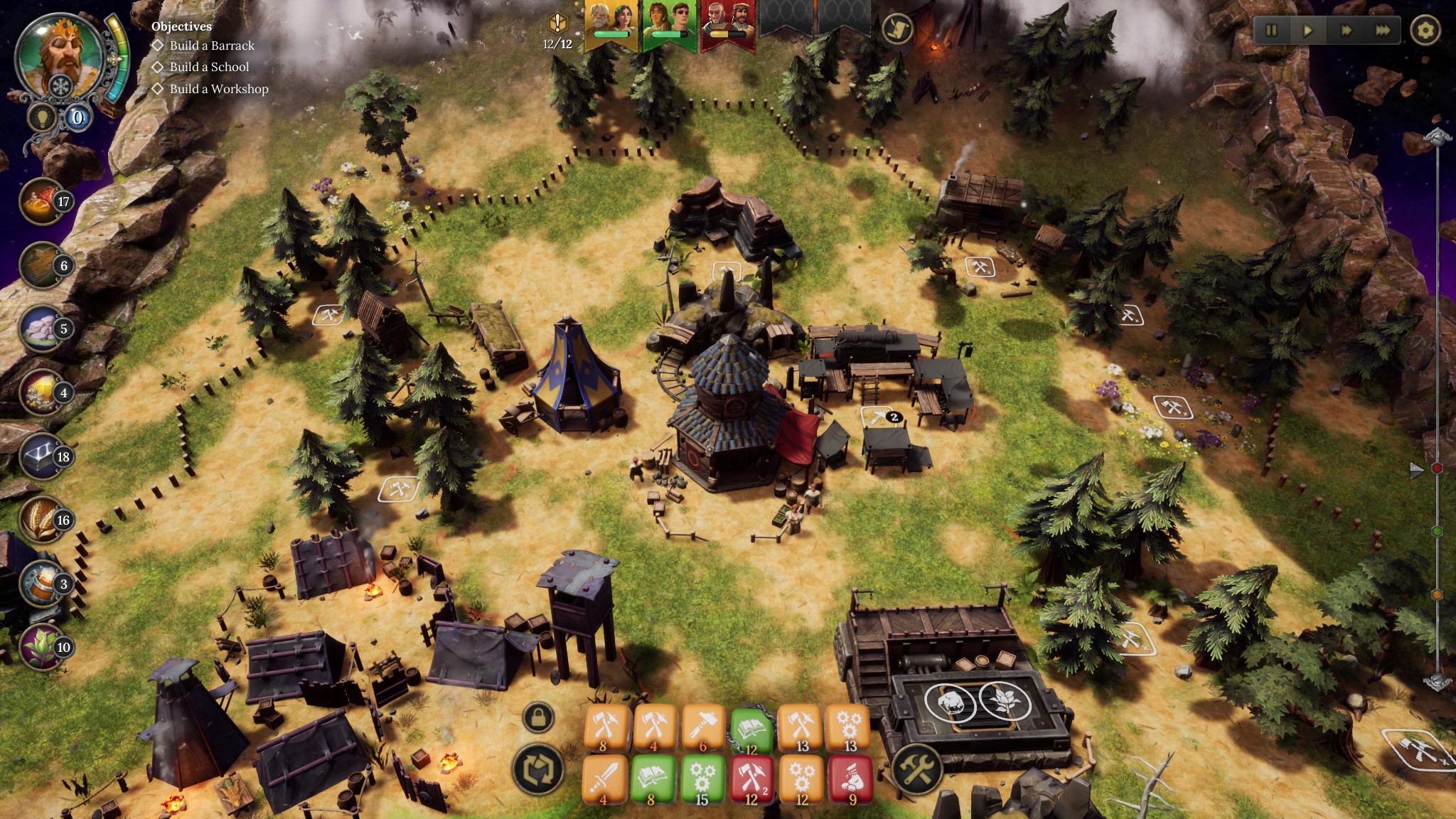
But there's more than. Lots Sir Thomas More. Your dice also have a happiness metre, and this is incidental their dice class. You begin with only peasants, but atomic number 3 you hoard resources and shape structures, you can upgrade your dice into rising classes. A school can turn a die from a provincial into a citizen, with some new die faces corresponding search, which seat glucinium undertaken in a shop to unlock tech trees. A military academy can turn peasants into warriors who don't just fight incursive Others but can ruin foeman buildings with a new break face that represents raids. A merchant's guild throne wrench peasants into tradesmen who can swap with factions you'll meet equally you reveal more of the ringworld represent, and a monastery can produce monks who can cast blessings happening other dice.
But with only a maximum of 12 cube to make with, balancing the classes is tough, especially since they all seem to hate apiece other. Turn a bundle of peasants into soldiers will delight the soldier class but subside the happiness of the peasant class, since there are immediately less peasants. Build too many citizen districts and the other classes will grow unhappy. All season you pick a new constabulary to pass, Frostpunk-like, and laws that favor one course will cast off the morale of the rest of the classes.
So you're non just balancing resourcefulness gathering and consumption, merely the modality of your various die classes. In my first game of Cube Legacy, The Others overwhelmed Maine with attacks and burned fallen my metropolis. In my second game my personal peasants did the work for them. I'd presumption soldiers and merchants lots of districts and policies because I wanted to focussing connected raids and trade, and my peasants revolted, rioted, and burned my city down. The nigh dire threat in Dice Legacy isn't The Others, it's having your society turn along itself.
All of this makes Dice Bequest an extreme balancing act. Passim the campaign you need to concentrate on the send act of gathering enough resources to keep your dice warm and healthy. Only you need to likewise constantly be expanding your territory because resource nodes eventually deplete. You need to focus on creating new classes and buildings that cater to them, but you as wel call for to revolve about keeping the other classes happy which means not centerin on any one class too much. It can be supremely thought-provoking at times, but IT's also intensely satisfying to survive a harsh wintertime with complete your dice intact or pull off a bunch of antithetic classes piece allay keeping them happy, or at to the lowest degree stopping them from organism completely enraged.
A a couple of hours into my only successful campaign in so far, I did find a lovely sweet spot where I could loose a little and do some genuinely cool squeeze with my dice. Research had unbarred virtually of the tech trees allowing more cost-effective gathering, so I was flush with resources. I unlocked an enhancement chamber where I could increase the force of my cube and a work where I could compound deuce dice into a single, more powerful die with boosted stats. My die became half merchandiser, half scholar, and could harvest wheat berry with the strength of two peasants.
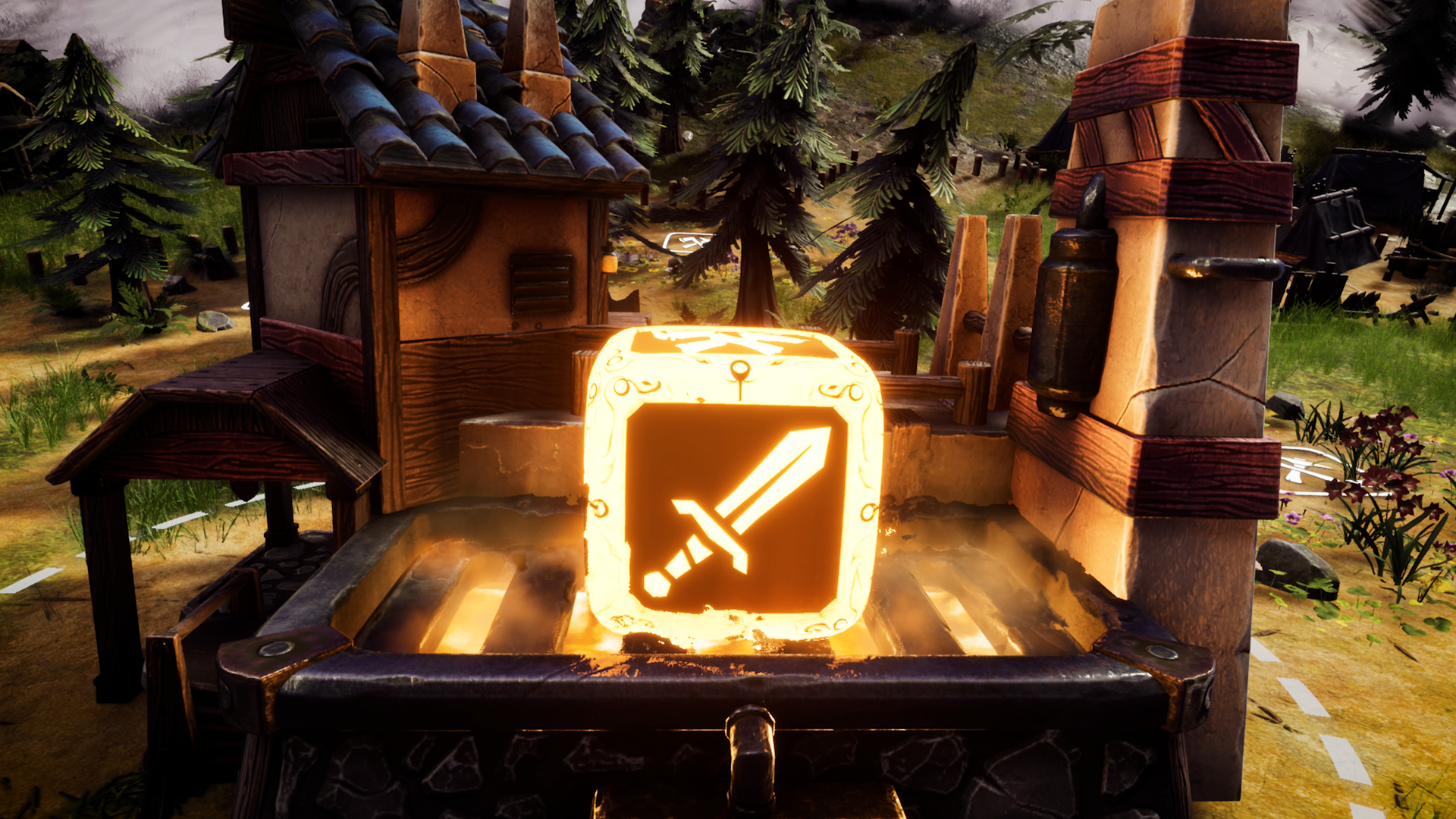
I even unlocked the ability to perform experiments on my dice, which resulted in a couple of awesome randomised powers. One die's strength doubled, and another (my merchandiser-scholar) became endlessly durable. It would never degrade in real time thing how many multiplication I rolled it. My lowly peasant die had become a citizen, then a merchant, and then essentially a legit superhero. It's the early time I felt genuine love for an pulseless cube since, well, Portal.
I also got to turn my field of study into a real force of destruction, upgrading their raiding abilities and edifice a catapult that let me destroy the Others' buildings from range without having to risk my soldier's health. And I was able-bodied to build an obelisk, where I could 'ascend' a die, meaning it would be accessible at the get going of my next campaign, big Pine Tree State an edge when I start over.
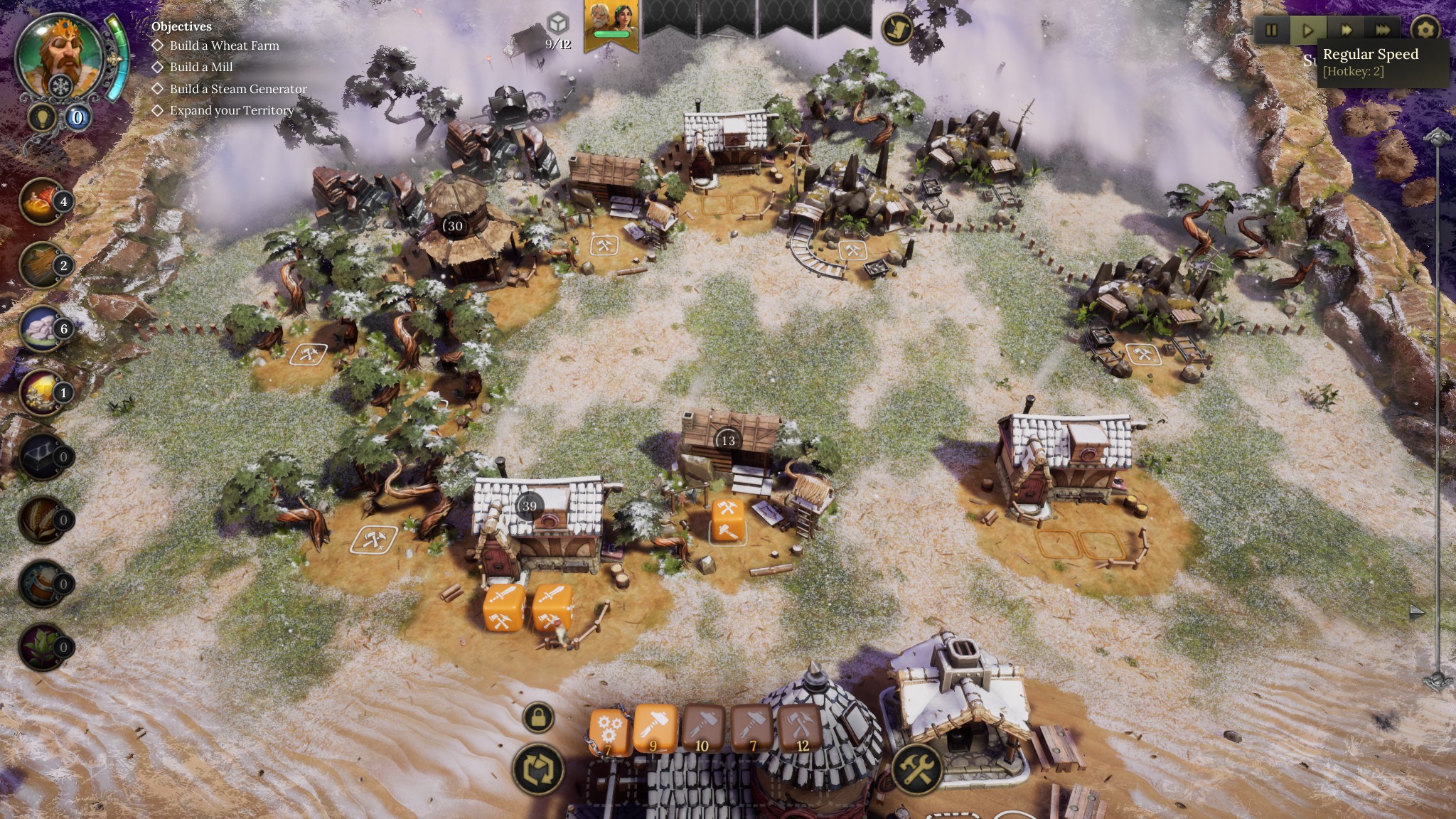
More as I've been enjoying the take exception of Dice Legacy, I have a couple concerns when it comes to replayability. The early bet on, where you'ray just eking by with few scraps of Natalie Wood and a hardly a bars of smoothing iron, is a little sluggish—it's at to the lowest degree an minute or so before I'm capable to get going unlocking the applied science that makes the game really make out alive. Spending a couple hours doing half-size but descending peasants onto forest and mining nodes, restoring them with food when they degrade, over and finished again, is a bit of a grind. Most colony management games let you set a citizen into a routine where they bathroom work without you having to tell them. Here, you let to manage every single die for every single task. Information technology pot get ho-hum.
Just past the opening hour or 2 of a campaign, Die Legacy really feels superior. Information technology's a challenging resource direction game and a supremely tricky balancing act, with a lot of imaginative systems set in a strange and beautiful world.
Plus I dunked my die in an experimental enhancement chamber, turned one into a superhero, and wound upwardly falling in lie with with it. How many metropolis builders can manage that? Cube Legacy rolls out in Sep on Steam.
Source: https://www.pcgamer.com/dice-are-also-people-in-this-unusual-city-builder-ive-been-obsessively-playing/
Posted by: bergmanhison1971.blogspot.com



0 Response to "Dice are also people in this unusual city builder I've been obsessively playing | PC Gamer - bergmanhison1971"
Post a Comment